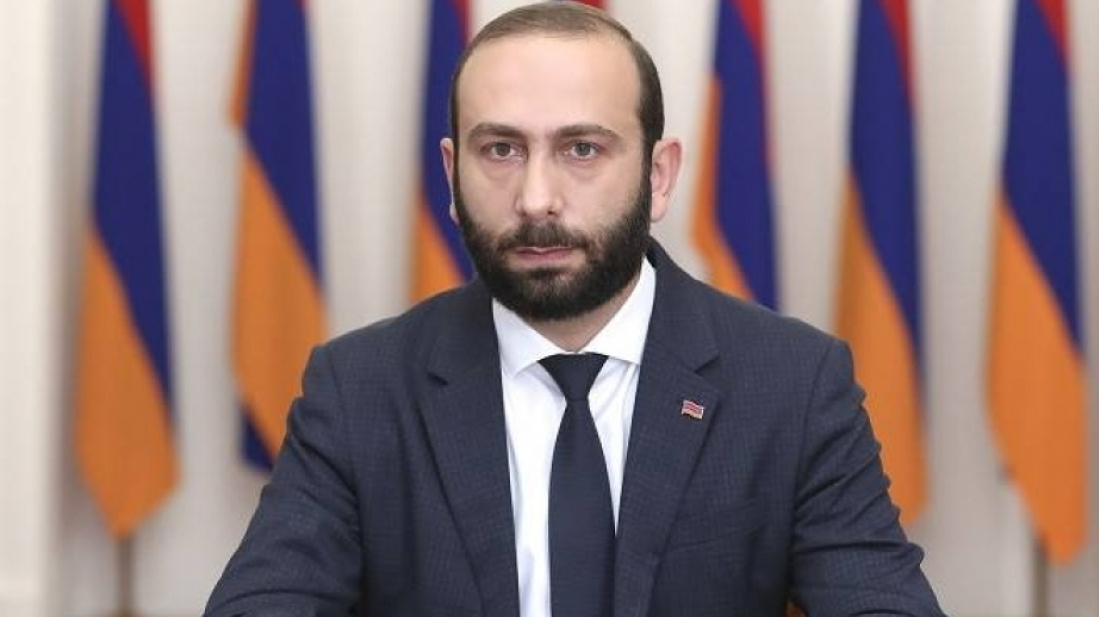Afghan and Uzbek firms sign $300m in deals at trade conference
Afghan and Uzbek traders have signed 25 agreements worth more than $300 million at a business conference, as officials from both sides said trade ties...

Armenia and Azerbaijan have agreed to reopen transport connections, including railways and roads, marking a rare step forward in efforts to normalise ties despite lingering disputes, Armenian Foreign Minister Ararat Mirzoyan said.
Speaking at the Warsaw Security Forum in an interview with Polish broadcaster TVP World, Armenian Foreign Minister Ararat Mirzoyan confirmed that Yerevan and Baku had reached an understanding to reopen transport communications between the two countries.
“This applies to all infrastructure,” Mirzoyan said. “For example, Armenia will gain access to the Azerbaijani railway system, and Azerbaijan to the Armenian railway system, and later also to roads and other infrastructure. We can use each other’s infrastructure just like ordinary neighbours do, for instance in Europe or elsewhere.”
According to him, the shortest link between mainland Azerbaijan and Nakhchivan will serve as a transit route, while Armenia could use Nakhchivan’s territory to connect its north and south with a railway, which does not currently exist.
Reciprocity and pending conditions
Mirzoyan stressed that all arrangements would be based on reciprocity. However, he said Azerbaijan was introducing additional conditions that Armenia did not accept.
“The peace treaty text was finalised back in March and is now initialled. We are ready to sign it as soon as possible, although the Azerbaijani side is setting additional conditions we do not agree with,” he said.
Despite the lack of a formal signature, the minister noted that cooperation was advancing, including joint initiatives within international organisations. Both countries have also formally requested the closure of the Organization for Security and Co-operation in Europe, OSCE’s Minsk Process, signalling a new phase in their relations.
Progress on the border and security
The Armenian foreign minister reported that 12 kilometres of the border have already been demarcated, easing tensions in border villages.
“In Armenian border villages, people feel safer, new schools are being built, and life is improving,” Mirzoyan said.
Yet, he acknowledged that reconciliation faces challenges.
“The main challenge remains the psychological weight of decades of conflict - memories of bloodshed and mutual mistrust. Reconciliation will take time and requires daily effort. Aggressive rhetoric from either side does not help.”
Russia’s mixed signals
On relations with Moscow, Mirzoyan pointed to contradictions.
“Officially, Russian officials welcomed the Washington Declaration and expressed readiness to support the transport connectivity project,” he said.
“But at the same time, we see daily harsh criticism in Russian media, parliament, from experts and politicians, all directed at Armenia’s foreign policy,” he added.
He underlined that Armenia’s decisions should be respected by external powers.
“In any case, I am convinced that our Russian colleagues, as well as any other state or international actor, must respect the will of the Armenian people,” Mirzoyan said.
Cuba’s fuel crisis has turned into a waste crisis, with rubbish piling up on most street corners in Havana as many collection trucks lack enough petrol to operate.
Ruben Vardanyan has been sentenced to 20 years in prison by the Baku Military Court after being found guilty of a series of offences including war crimes, terrorism and crimes against humanity.
Canadian Prime Minister, Mark Carney, announced on 16 February that the Honourable Janice Charette has been appointed as the next Chief Trade Negotiator to the United States. She's been tasked with overseeing the upcoming review of the Canada-United States-Mexico Agreement (CUSMA).
The Pentagon has threatened to designate artificial intelligence firm Anthropic as a “supply chain risk” amid a dispute over the military use of its Claude AI model, according to a report published Monday.
Israeli airstrikes on southern Lebanon killed two people in 12 hours, Lebanon’s Health Ministry said on Tuesday.
U.S.-mediated talks between Russia and Ukraine in Geneva were “difficult” but yielded some progress, Ukrainian President Volodymyr Zelenskyy said, adding that both sides agreed to continue negotiations despite their remaining differences.
Millions of Muslims around the world have begun observing Ramadan, the ninth month of the Islamic lunar calendar and the most sacred period in Islam.
Foreign intelligence services are able to see messages sent by Russian soldiers using the Telegram messaging app, Russia's minister for digital development Maksud Shadayev said on Wednesday, the Interfax news agency reported.
Meta Chief Executive Mark Zuckerberg is expected to testify in a high-profile trial in Los Angeles examining claims that the company’s platforms contributed to youth addiction and mental health harm.
The drumbeats have finally faded at the Marquês de Sapucaí, bringing the competitive phase of the Rio Carnival 2026 to a dazzling close. Over two marathon nights of spectacle, the twelve elite schools of the "Special Group" transformed the Sambadrome into a riot of colour.
You can download the AnewZ application from Play Store and the App Store.

What is your opinion on this topic?
Leave the first comment